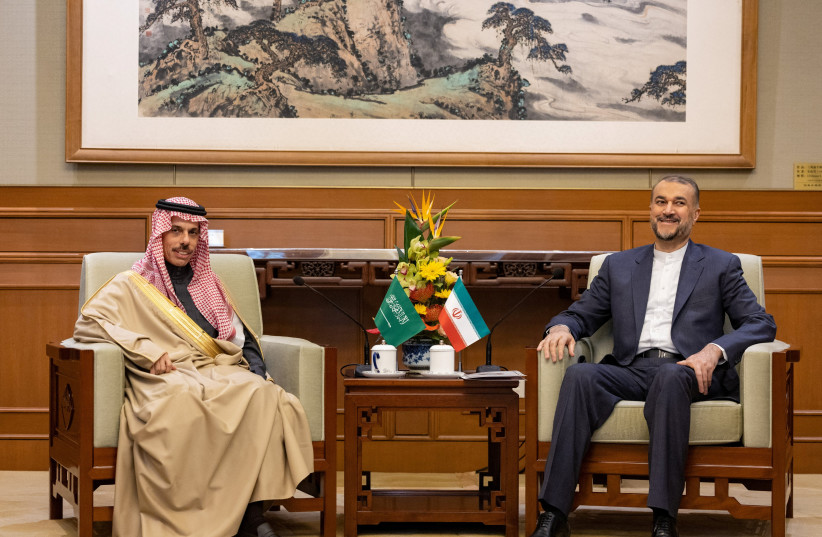The “Secret Plan” is what they’re calling French President Emmanuel Macron’s move to team up with China and put an end to the Ukraine war, according to The Telegraph. The news outlet verified that Macron is working on a plan to bring Russia and Ukraine to the negotiating table with backing from Beijing by summer. The report also touches on how France and China are working together to get a comprehensive framework ready that could serve as a starting point for any future negotiations.
Looking for ways to negotiate a way out of the conflict isn’t exactly shocking news, it’s just par for the course when you’re dealing with the political and strategic aspects of a rivalry. Everyone knows that war is just one step in the political process and it’s inevitable that negotiations will have to take place eventually, as the old-school politicos would tell you.
Better to avoid a time bomb
If there isn’t some sort of resolution at the negotiating table, then the conflict is going to stay open-ended and chronic, turning into a ticking time bomb of a crisis. That’s especially tough in cases where things are extra complicated and sensitive, like the Ukraine crisis.
The French and Chinese are trying to use their political muscle to make headway in the ongoing military conflict in Ukraine. That’s because shaping the future of our world is just as much about politics and diplomacy as it is about military might.
So when you’re dealing with a big-time global rivalry, like the one we’re seeing right now, it makes sense for a major player like China and an influential European power like France to try to stay relevant through diplomatic channels. That’s their way of making sure they don’t get left behind in the grand scheme of things.

China and France know that their diplomatic efforts may not be enough to get the warring parties to sit down at the negotiating table. But they also understand that their collaboration is crucial to whatever role they may end up playing in this crisis. That being said, the West may not be too keen on letting China take the lead in mediation.
With all the tension between Washington and Beijing, and the United States accusing China of backing Russia in the war, it’s going to be a tough pill for the West to swallow. Plus, the US may not want to give China – its main strategic competitor and rival for global influence – any sort of political gain by letting them take on a mediation role that would boost China’s status around the world.
Chinese mediation
SO, THE US might only be willing to accept Chinese mediation in very specific cases, like if the war in Ukraine escalates, or if there are new security threats to all of Europe. Even then, China’s role might have to be part of an international troika or a bilateral mediation with a Western ally that’s closer to the US, like France.
France understands that trying to take on a mediation role by itself in the Ukraine crisis would be a tough nut to crack. Macron has already tried to come up with a solution by reaching out to Moscow and making a personal visit, but he came up empty-handed and shifted to backing Ukraine fully on the military and political fronts.
France is looking for a way to assert its place on the global stage after the Ukraine crisis, even if that means promoting the idea of a third major power – Europe – that can play an important role alongside the other international powers that are competing to be the top dogs in the global system. Macron knows that he can only realize his ambitions in this regard through coordination and cooperation with other international players, such as China.
The success of any diplomatic effort from China and France, or any other international party, hinges on the outcome of the Ukrainian Spring Offensive and its aftermath. France is seeking to coordinate with China while also rooting for a Ukrainian military win that would bolster Kyiv’s position at the negotiating table and increase pressure on Russia to join the talks.
China’s stance may seem at odds with France’s as Beijing hopes for a Russian military victory that forces Ukraine to come to the table. While China acknowledges the need to give Russia a chance to achieve its military goals, it also recognizes that a complete victory for either side is not in its interest.
The ideal outcome for China is a split victory or for both sides to be compelled to negotiate an end to their losses. However, this is a tough prospect to realize, at least under current conditions in Moscow and Kyiv, which may change as the conflict progresses.
The hush-hush French-Chinese scheme is still in the works and won’t be brought to light unless there are major changes in the Ukrainian situation. China is still playing it safe when it comes to pushing Russia to end the conflict and Macron has struck out trying to convince President Xi Jinping to reach out to President Volodymyr Zelensky.
It’s important to keep in mind that Beijing ties everything it does in the Ukraine crisis to what’s happening with Taiwan, where it’s banking on its capacity to keep Europe out of what it calls the US bandwagoning in Taiwan.
In theory, Russia may benefit from allowing French diplomatic efforts to succeed, as it aligns with China’s desire to prevent European influence from falling under American control. However, this is contingent upon not compromising Moscow’s strategic goals in Ukraine, which are closely tied to developments on the ground in the ongoing war.
The writer is a UAE political analyst and former Federal National Council candidate.
